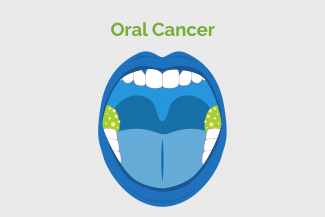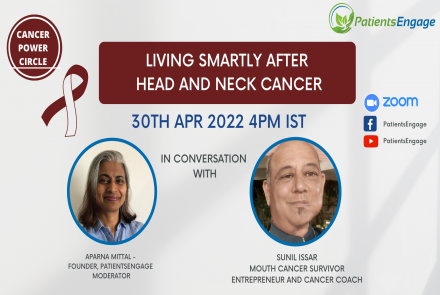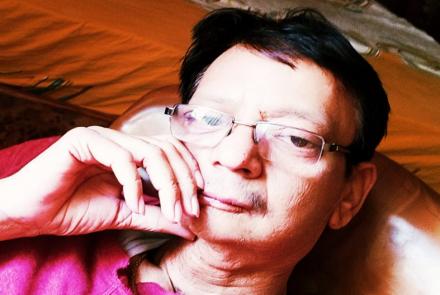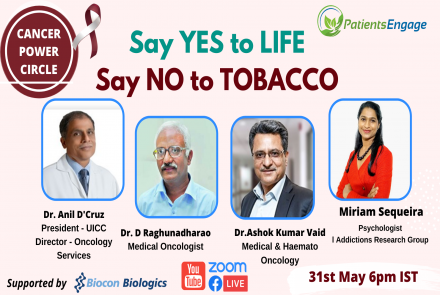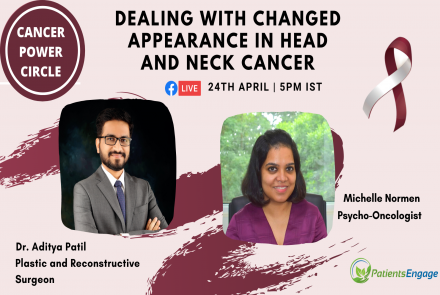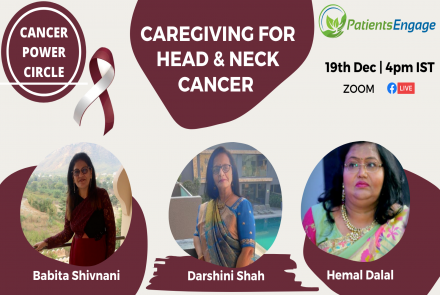
Apart from the treatment options, the following are important for management of oral cancer as well:
Food and nutrition
Eating right is a key part of cancer treatment. You need to keep your body as strong as possible before, during and after treatment, so you need to take in enough nutrients. Eating enough proteins and calories will help your body deal with the treatment and fight off infections. Weight loss or malnutrition presents a real life risk for cancer patients.
But for some oral cancer patients, food intake may be difficult because of pain present in the mouth. In such conditions, the patient may be asked to apply an anaesthetic gel 30 mins before having food.
Try to follow these diet guidelines and suggestions:
- If eating is a challenge, eat small, frequent meals
- Eat at the times of day when you are feeling at your best
- Eat soft or moist foods or follow a liquid diet as instructed by the dietician.
- Eat room temperature food (neither too hot or too cold)
- Drink yogurt-based smoothies or buttermilk
- Eat five or more servings of a variety of vegetables and fruits each day.
- Cut back on salty and fried foods.
- Choose fresh-squeezed juice if you are drinking fruit or vegetable juices
- Choose proteins like fish, chicken, lentils, pulses, paneer, etc.
- Drink lots of fluids
Exercise
It is important to stay active during and after treatment. As soon as you are able, do some light exercises like brisk walking, swimming and yoga.
Follow–up care
Consistent check-ups post-treatment are very important as oral cancer can recur. There is also the risk of another new cancer developing in the head and neck area. Go for check-ups every six months
At your check-up, the doctor may suggest blood test, dental check, X-ray, CT scan. Be vigilant for early warning signs so these can be tackled swiftly.
Take charge – Your action plan
- Be informed. Learn as much as you can about your condition. Talk to your doctor about your condition, treatment and prognosis. Read up about oral cancer, so you know what questions to ask your doctor. Speak to other patients to find out what treatments and therapies have worked for them. Being informed keeps you in charge of your health and treatment.
- Nourish your body. Make sure you are giving your body the nutrition it needs. Eat, even if you don’t feel like it.
- Exercise moderately when you are able to
- Stay positive. Join a support group. Talk to people facing similar challenges. Talk to family and friends about your feelings. Read books that offer encouragement.
- Stay focused on your treatment with timely follow-ups and healthy lifestyle.
Know your support team: Who can help you stay healthy
- Dental surgeon
- Medical oncologist
- Surgeon
- Radiation oncologist
- Dietitian
- Therapist for speech, oral motor, swallowing etc.
- Counsellor or mental health practitioner
- Other specialists depending on your condition
References:
- Read more on diet for oral cancer : https://www.patientsengage.com/healthy-living/soft-food-options-lunch-d…
- https://www.patientsengage.com/healthy-living/oral-cancer
- https://www.patientsengage.com/healthy-living/foods-increase-cancer-risk
- Control tobacco to control cancer - https://www.patientsengage.com/news-and-views/tobacco-control-cancer-co…

